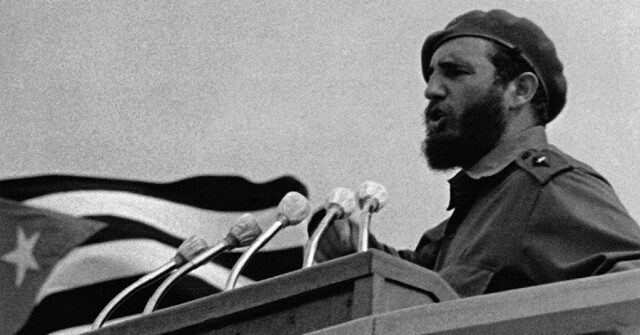Sandro Castro, the grandson of the late Cuban dictator Fidel Castro, has stirred significant controversy with announcements of an extravagant birthday party slated to take place in Havana amid the ongoing degradation of the country’s infrastructure. The celebration is scheduled for December 5th at the EFE Bar, an upscale venue owned by Castro in the Vedado district of Havana, which has a reputation for hosting opulent events. Sandro Castro frequently showcases his luxurious lifestyle on social media, particularly on Instagram, where he shares glimpses of wealth that starkly contrasts the harsh realities faced by ordinary Cubans who have endured the consequences of communism for decades.
The birthday celebration is widely publicized and bears a specific white dress code, along with an array of upscale features such as a welcome cocktail and complimentary drinks, including a shot of tequila for selected women. The organization behind this event includes Carlos Rogelio Bolufé García, who has been described as a relative of a well-known agent of the Cuban Ministry of the Interior. Despite claiming to oppress the regime, Bolufé García’s involvement raises questions about the complex dynamics within Cuba’s socio-political landscape. The timing of this lavish event highlights an alarming disconnect between the privileged lifestyles of the elite and the struggling majority of Cuban citizens grappling with severe economic hardships.
Cuba currently faces a humanitarian crisis characterized by widespread shortages of food, medicine, fuel, and basic necessities. The cumulative impact of six decades of communist governance has left around 90% of the population living in extreme poverty. The dire situation has led to a growing number of Cubans resorting to scavenging for food, as many struggle to find ways to survive amidst increasing shortages. The devastation has escalated, prompting waves of emigration; the country is experiencing its largest exodus in history, with over 850,000 Cubans having reached the United States since 2022 alone.
The country’s infrastructure has deteriorated significantly, highlighted by the recent collapse of the power grid, which led to prolonged blackouts affecting the populace. Although the grid has been partially restored, it remains unreliable, with officials warning that blackouts may worsen in early December. The government’s response to this crisis has been to implement “wartime economy” measures, yet these have had little to no positive effect on alleviating the suffering experienced by ordinary Cubans. The leadership is increasingly transparent about its plight, seeking international assistance to maintain its socialist framework.
In stark contrast to the grim realities faced by the average Cuban, Sandro Castro’s lifestyle has attracted outrage and criticism from those who live under the weight of communism. His ostentatious displays of wealth, such as enjoying meals at upscale restaurants where prices are exorbitantly high, underline a chasm between the elite and the populace. Earlier this year, he posted images from luxurious vacations, further alienating those struggling for basic sustenance. Such public exhibitions of privilege evoke anger and resentment among those who feel abandoned by a regime that prioritizes the indulgences of a select few over the needs of its citizens.
The situation encapsulates broader themes of inequality in Cuba, where the ruling elite enjoy access to resources that most citizens cannot aspire to. As public discontent mounts amidst lasting economic hardships, events like Sandro Castro’s birthday celebration serve to ignite further outrage, challenging the legitimacy of the regime that allows such disparities to exist. This brewing anger reflects the sentiments of many who long for change, as they grapple with the grim realities imposed by decades of communist rule and the crumbling legacy of the Castro dynasty espoused by its remaining members. The situation foreshadows potential for unrest and upheaval as the divide broadens between the governing class and the majority of Cubans yearning for a better future.

